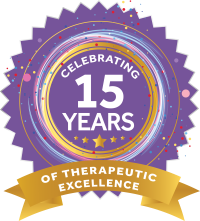 As the late pro football player and coach Tom Landry said, “Setting a goal is not the main thing. It is deciding how you will go about achieving it, and staying with that plan.”If that advice is followed, now is the time to start setting goals and making a plan for how to achieve those goals before the start of the next school year. With the 2021-2022 fiscal year coming to an end, and the next one about to start, we know many educational institutions across the country are looking for ways to make sure their monies are being used to continue to help and support their students, especially those who require exceptional education services.So how can educators, such as school therapists, teachers, counselors and administrators best plan for the upcoming 2022-2023 school year? First, they need to recognize the needs of their students. Do they need to provide mental health or school counseling services? Do they need to provide speech language services or psychoeducational assessments? Once those questions are addressed and answered, then decisions can be made and planning for the school year can start.But where can they start?The answer: E-Therapy. Where does E-Therapy fit in with your district? School? Staff? Students?The answer: anywhere you need us to. Over the last 13 years, E-Therapy has provided teletherapy services to PreK-12 students in schools nationwide. We offer a “menu” of services to any school district or school from traditional public, charter or private to fully-virtual or home schools in suburban, urban and rural areas. When first reviewing our “menu,” school administrators can choose from a multitude of related services such as counseling, occupational, physical and speech teletherapy.
As the late pro football player and coach Tom Landry said, “Setting a goal is not the main thing. It is deciding how you will go about achieving it, and staying with that plan.”If that advice is followed, now is the time to start setting goals and making a plan for how to achieve those goals before the start of the next school year. With the 2021-2022 fiscal year coming to an end, and the next one about to start, we know many educational institutions across the country are looking for ways to make sure their monies are being used to continue to help and support their students, especially those who require exceptional education services.So how can educators, such as school therapists, teachers, counselors and administrators best plan for the upcoming 2022-2023 school year? First, they need to recognize the needs of their students. Do they need to provide mental health or school counseling services? Do they need to provide speech language services or psychoeducational assessments? Once those questions are addressed and answered, then decisions can be made and planning for the school year can start.But where can they start?The answer: E-Therapy. Where does E-Therapy fit in with your district? School? Staff? Students?The answer: anywhere you need us to. Over the last 13 years, E-Therapy has provided teletherapy services to PreK-12 students in schools nationwide. We offer a “menu” of services to any school district or school from traditional public, charter or private to fully-virtual or home schools in suburban, urban and rural areas. When first reviewing our “menu,” school administrators can choose from a multitude of related services such as counseling, occupational, physical and speech teletherapy.
SLP, PT and OT Services
We offer speech language pathology (SLP) services to treat articulation, receptive and expressive language, childhood apraxia of speech, pragmatic/social language skills, and fluency. We provide a formal speech and language assessment utilizing a battery of standardized measures which includes written reports detailing the student’s performance and qualifying criteria with interpretation and explanation of standard scores.Our occupational therapists (OTs) work with students on their fine motor skills, sensory integration, coordination, visual perception, motor planning, and attention. Similar to the SLP assessment, we conduct an OT assessment that uses an array of standardized measures that includes written reports of the student’s performance and qualifying criteria with interpretation and explanation of standard scores. Lastly, our physical therapists (PTs) address a variety of PT areas including gross motor skills, range of motion, strengthening, balance, body awareness, and motor planning. A formal PT assessment utilizing a set of standardized measures is given and includes written reports of the student’s performance and qualifying criteria with interpretation and explanation of standard scores. Next on our “menu,” we offer mental health services which can include social work, counseling and psychological evaluations.
Mental Health Services
E-Therapy offers a wide array of mental health services that are provided by a team of licensed mental health professionals. We are able to address a wide continuum of mental health needs, whether it is social workers who work with students and families to connect them to resources and address mental health needs, or our licensed professional counselors who offer telecounseling services to work with individuals, families, and groups in treating mental, behavioral, and emotional problems and disorders. Our clinicians work with both general education and special education students and families. In addition, our school psychologists are able to complete psychoeducational assessments using a range of standardized assessments and rating scales to measure overall aptitude and academic achievement. Schools are provided written reports detailing the student’s performance and qualifying criteria with interpretation and explanation of standard scores, as well as a care plan, in some instances, that outlines supports a student could benefit from moving forward. Not sure if your school community is in need of mental health care? Read on to find out more about the state of mental health needs for students and staff, along with some unique solutions E-Therapy has created to address these needs.
Mental Health Awareness and Care
Prior to the pandemic, our youth already were affected by a mental health crisis with many diagnosed with depression or anxiety. However, within the past two years, the pandemic exacerbated this crisis and now even more children and teens are suffering from anxiety and depression. According to the University of Minnesota’s Center for Infectious Disease, Research and Policy website, one in four children (ages 17 and under) suffer from depression and one in five children suffer from anxiety.
- Anxiety- a feeling of worry, nervousness, or unease, typically about an imminent event or something with an uncertain outcome.
- Depression- a mental condition characterized by feelings of severe despondency and dejection, typically also with feelings of inadequacy and guilt, often accompanied by lack of energy and disturbance of appetite and sleep.
Furthermore, according to the CDC website, when a child or teen suffers from a mental disorder it can seriously change the way they typically learn, behave, or handle their emotions, which can cause distress and problems getting through the day.Because of the immediate demand to confront mental health awareness in the education community, E-Therapy launched two new programs: eQUIP and eWELLNESS. Provided in these programs are various tools educators can use to help recognize and respond to students with mental health needs, and they offer the support educators need to acknowledge and address their own well-being.With our comprehensive assessment and screening bundle, we can provide direct child therapy services to those who have been identified as needing immediate attention to support their mental health well-being. Once referred, students and their families meet with an E-Therapist for an intake to pinpoint presenting concerns utilizing evidence-based screeners and other school data. Throughout a pre-determined number of intervention sessions, an E-Therapist will work with the student to develop strategies and skills to work toward a determined goal(s). During the final session, the therapist will review how the student is doing using data to identify progress on goals. Following these sessions, the E-Therapist creates a care plan for the student. In addition to students’ needs being addressed, we recognized that educators also are struggling, and need this same support for themselves. Research shows that one-third of teachers leave within their first five years. The increased stress for teachers and school staff, due to pandemic, has led to burnout and multiple vacancies at schools across the nation. So because of this, we created two options for engaging, live virtual group wellness sessions. Our six-week wellness series focuses on staff wellness while also helping to build community within their school. Our “drop-in” wellness topics cover a variety of wellness areas such as “Becoming a Better Listener,” “Burnout: What it is and How to Combat it,” and “Creating Happiness.” We also created a solution-focused, brief-therapy program for educators. Educators who need support can anonymously be connected with an E-therapist, who is familiar with the needs of educators and the education system, for virtual counseling support. With the four sessions, educators receive evidenced-based services focused on solutions and strengths.
Work with E-Therapy
Our highly-qualified therapists, in addition to our mental health counselors, are hired and trained to customize services to truly engage students during their face-to-face, live, online, virtual therapy sessions. So, in the words of John F. Kennedy, “The time to repair the roof is when the sun is shining.” Don’t wait, chat with us today by clicking HERE.
